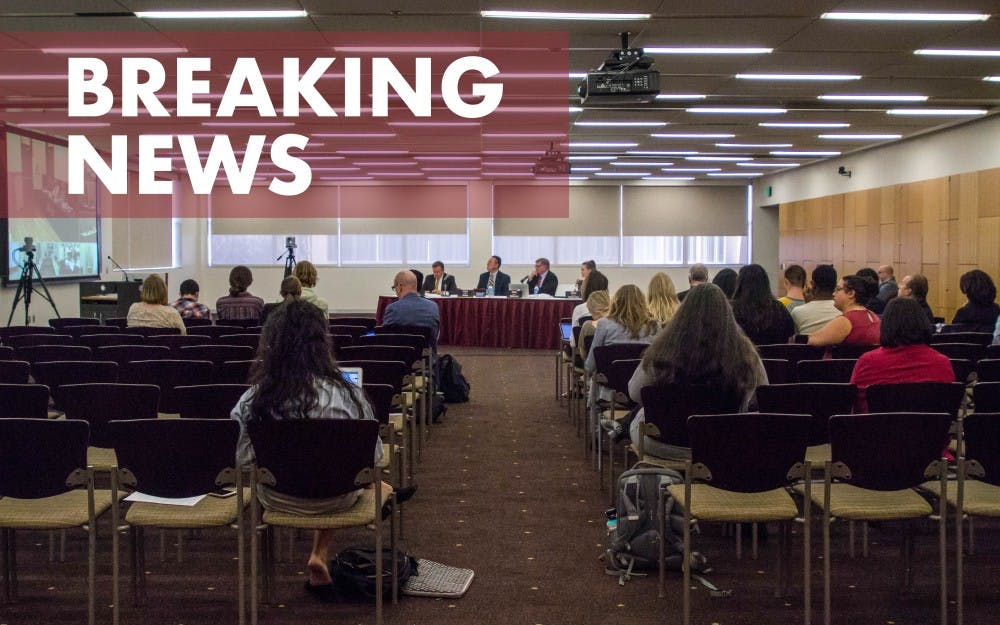The Arizona Board of Regents on Friday responded to a lawsuit filed by Attorney General Mark Brnovich aiming to rein in ASU’s practice of leasing tax-exempt public land to private businesses.
The lawsuit, filed on Thursday morning in the Arizona Tax Court, alleges that the real estate deals and the tax breaks that accompany them are illegal. In the lawsuit, Brnovich argues that private businesses on University-owned land should pay property taxes.
In a written statement issued Friday, ABOR chair Ron Shoopman said Brnovich is “inappropriately inserting the courts into an issue of public policy.”
Shoopman said that the lawsuit was filed without a prior discussion with the board or an “attempt to reach resolutions,” and that circumventing the board is not the correct way to resolve a policy issue.
“Resorting to litigation before engaging in meaningful dialogue is contrary to our mission as public servants and wastes precious taxpayer dollars,” Shoopman said.
The lawsuit also drew criticism from ASU, which called Brnovich “confused and confusing” and declared the lawsuit “frivolous” in a written statement issued on Thursday.
“Brnovich is suing the Arizona Board of Regents and Arizona State University over a real estate deal because he has decided he wishes the law was different than it actually is,” the University said.
Brnovich’s lawsuit cited a statute saying that ABOR may only buy, hold, sell or develop land “for the benefit of this state and for the use of the institutions under its jurisdiction,” and that developments like the Marina Heights property, Mirabella project, and planned Omni Hotel do not meet these requirements.
He also wrote that these tax deals are made “at the expense of the taxpaying community,” and that they take away from the property tax base available to public services, such as local schools.
“ASU is a public university, not a commercial enterprise or an urban development authority,” Brnovich said. “It is inappropriate for this educational institution to pick winners and losers in the highly competitive property development industry by negotiating for the use of ABOR’s tax shielding status.”
Reach the reporter atVandana.Ravikumar@asu.edu and follow @Vandana_rav on Twitter.
Like The State Press on Facebook and follow @statepress on Twitter.




